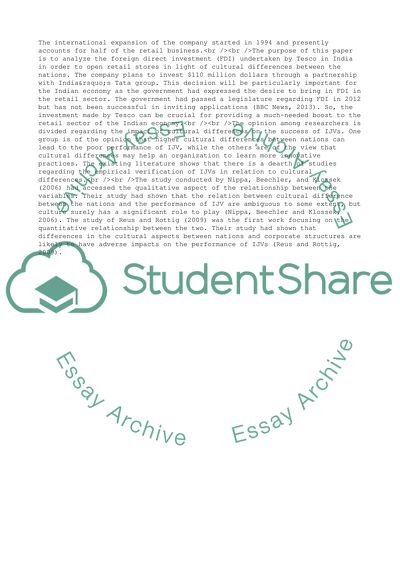Cite this document
(The Foreign Direct Investment Undertaken by Tesco in India Case Study Example | Topics and Well Written Essays - 1750 words - 9, n.d.)
The Foreign Direct Investment Undertaken by Tesco in India Case Study Example | Topics and Well Written Essays - 1750 words - 9. https://studentshare.org/management/1825286-tesco-in-india
The Foreign Direct Investment Undertaken by Tesco in India Case Study Example | Topics and Well Written Essays - 1750 words - 9. https://studentshare.org/management/1825286-tesco-in-india
(The Foreign Direct Investment Undertaken by Tesco in India Case Study Example | Topics and Well Written Essays - 1750 Words - 9)
The Foreign Direct Investment Undertaken by Tesco in India Case Study Example | Topics and Well Written Essays - 1750 Words - 9. https://studentshare.org/management/1825286-tesco-in-india.
The Foreign Direct Investment Undertaken by Tesco in India Case Study Example | Topics and Well Written Essays - 1750 Words - 9. https://studentshare.org/management/1825286-tesco-in-india.
“The Foreign Direct Investment Undertaken by Tesco in India Case Study Example | Topics and Well Written Essays - 1750 Words - 9”. https://studentshare.org/management/1825286-tesco-in-india.


